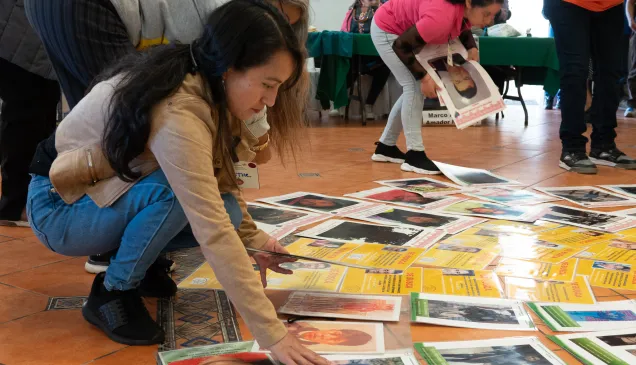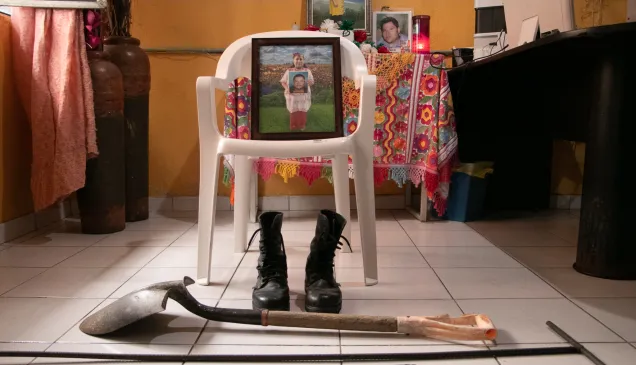Mexico: Dolls supporting families in the search for their loved ones
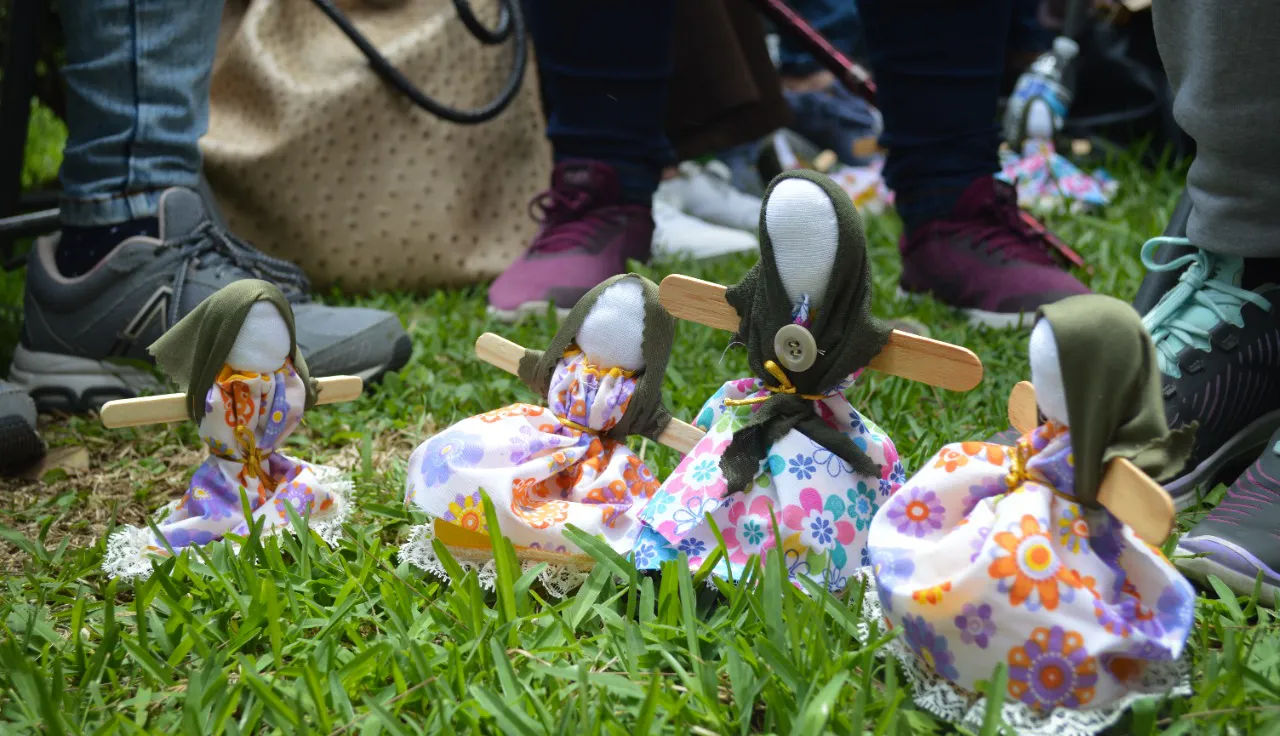
These dolls are just a few centimetres long. You could fit three, five or even ten in the palm of your hand. They are made out of colourful fabrics, paper, twigs and yarn. In some parts of Guatemala, before going to bed, children tell these dolls everything that worries them and keeps them up at night – whatever makes them feel sad and afraid. The dolls take in the children’s worries and help them sleep tight; all they have to do is place the dolls under their pillow (that’s why they are called “worry dolls”, or muñecas quitapenas in Spanish).
Patricia has her own doll to which she voices her concerns and confides her secrets. She made it herself while thinking of her son Bryan, who went missing in Guadalajara, Mexico, in 2018. Her doll is much bigger than its Guatemalan counterparts, measuring 10 centimetres. Patricia made her a flower dress with white lace and gave her a scarf made from one of Bryan's socks.
"It's my little memory doll. The scarf symbolizes that he'll always be with me in my memories, in my heart and in my mind."
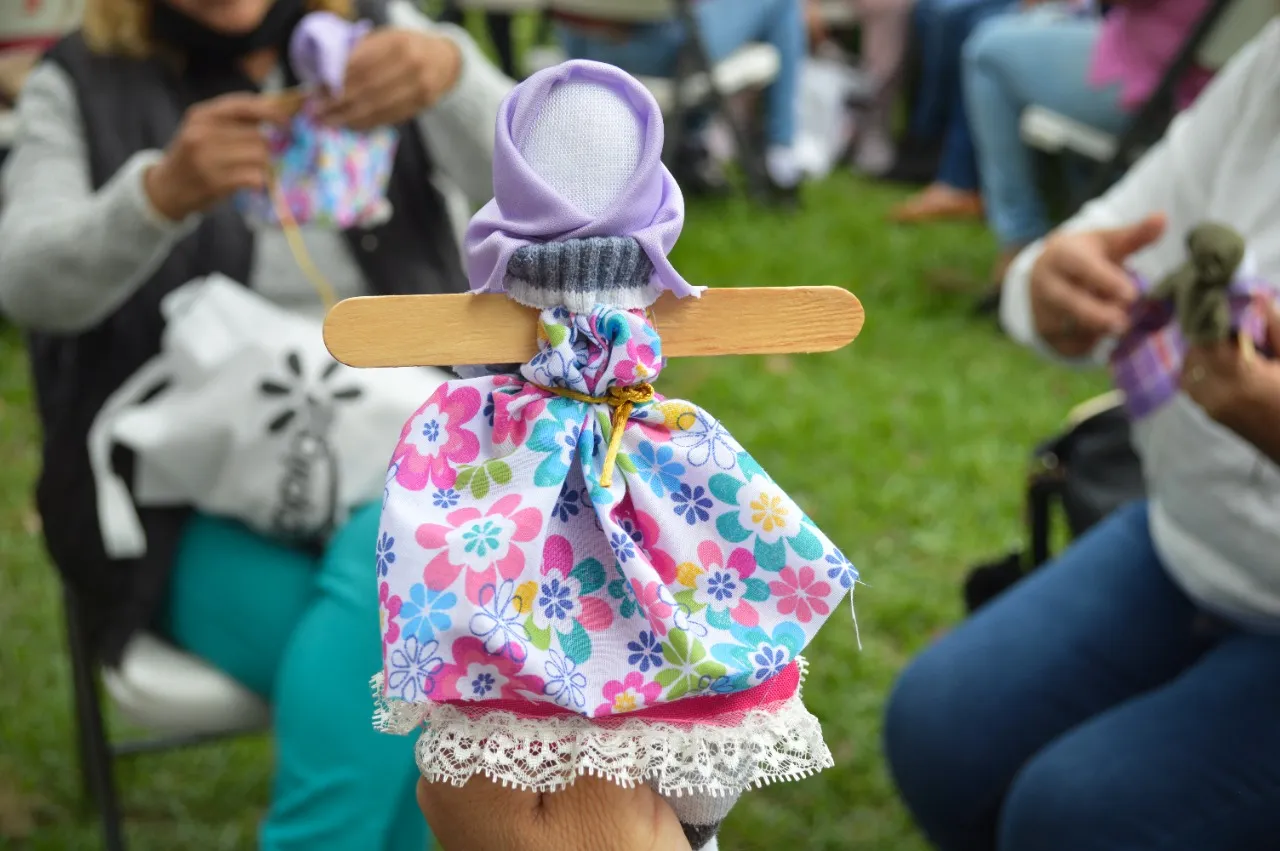
Like Patricia, 51 other family members of missing persons in Mexico made their own doll to help them cope emotionally with the tragedy they were faced with, serving as symbolic companions in the search for their loved ones.
This activity is part of a family‑oriented psychosocial support programme called Acompañar las ausencias (which roughly translates to "Living with absence"), with support from the regional delegation of the International Committee of the Red Cross (ICRC) for Mexico and Central America.
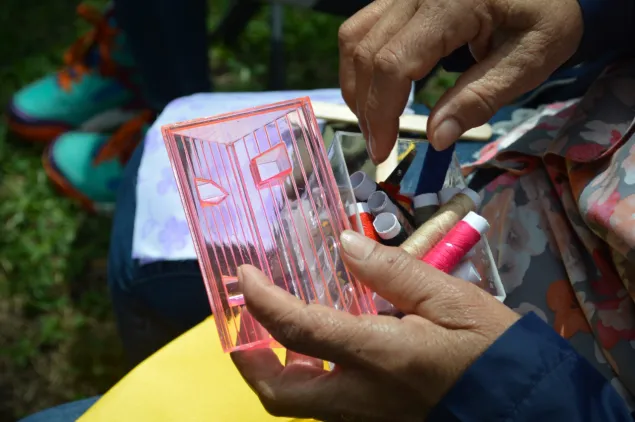
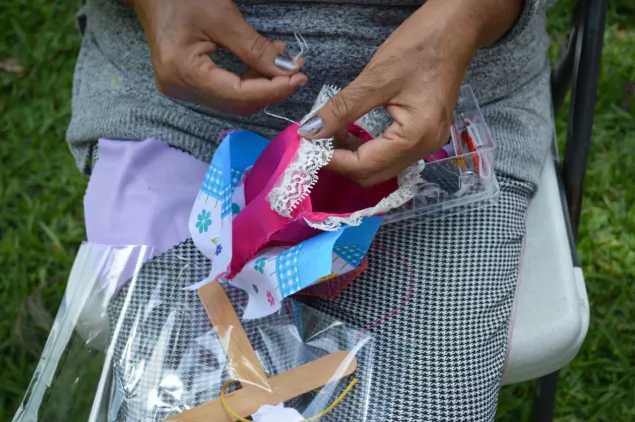
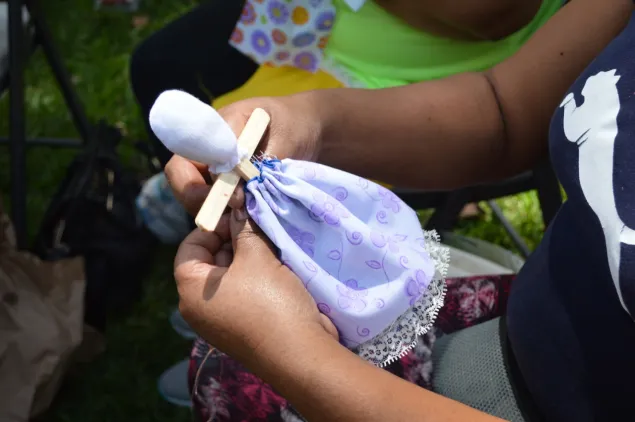
Beatriz Reyes, a psychologist at the ICRC's delegation, explains that one of their priorities is to accompany the families of missing persons by attending to their needs. And one of these needs is mental health support.
"It's important to create safe spaces where they can share their pain, their anguish, their uncertainties and especially their wisdom. These spaces help families recover their strength – as many of them have waited for news for years on end – and, most importantly, prevent their physical and mental health from deteriorating so they can continue with their search," said Beatriz.
During the pandemic, these families have been receiving psychosocial support online. The in‑person workshop for crafting these dolls, held in mid‑2021, was the first face‑to‑face activity they took part in after over a year of physical distancing.
Any object can be a keepsake
A sock, a handful of buttons, a used shirt. To the families of missing persons, their loved ones' clothes and belongings serve as a way of keeping them close by in their day‑to‑day. But that does not mean they do not think of them. On the contrary, they feel their love ones' absence all the time: "From the moment the sun rises, I think of him. He's with me in my memories and in everything I do."
The worry dolls are a way of materializing and giving shape to this absence. That's why, when making the doll, they include a piece of clothing from the person they are looking for.
Patricia's doll does not have eyes or a mouth so it cannot judge her or say hurtful things. So, when Patricia feels alone, she can tell the doll her worries, and this helps her cope with the difficult times.
The families' support dolls are made like this for a reason: because when they share how they feel with people who have not had to cope with a loved one going missing, they are often judged or stigmatized.
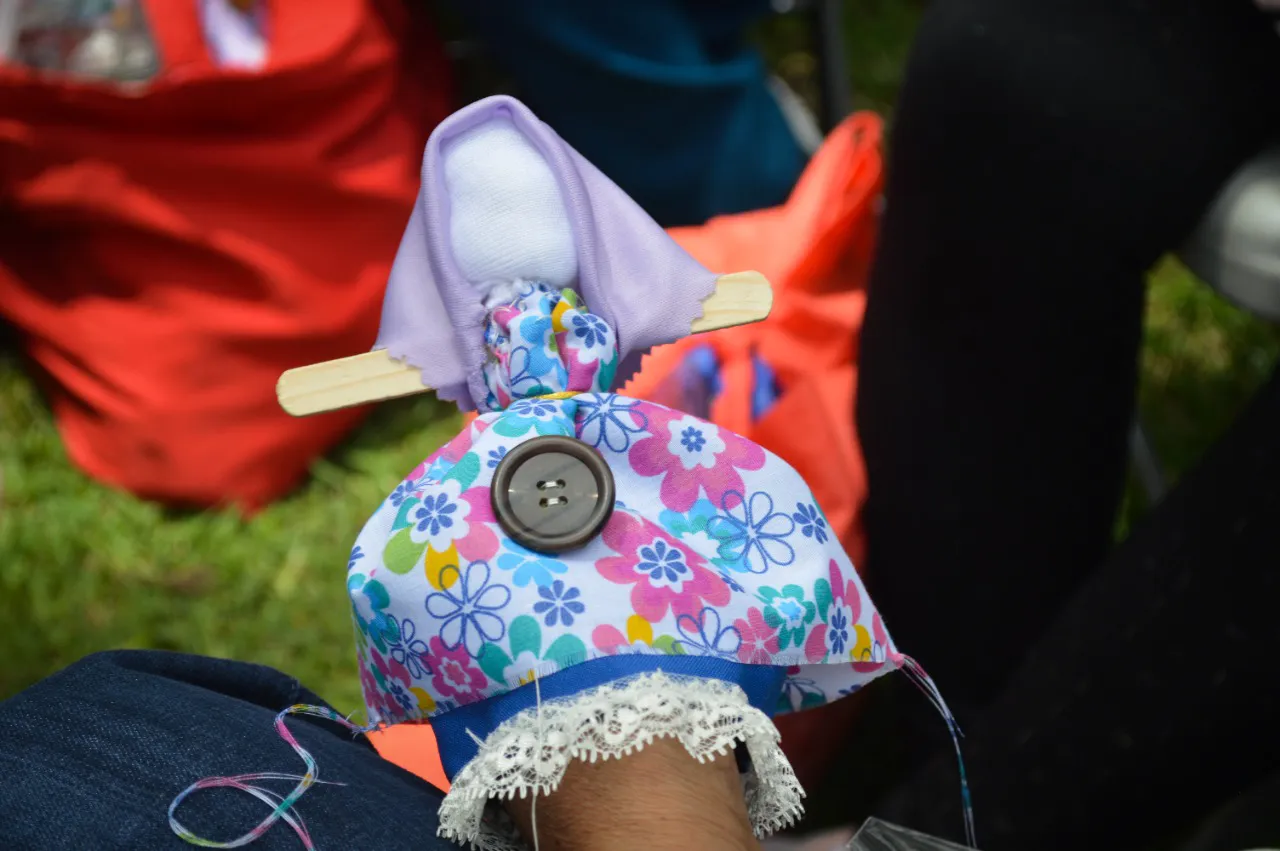
As Beatriz explains, these dolls help people feel they are not alone when they do not have a support network or cannot physically come together (which has been the case since the pandemic began). They tell the dolls about their frustrations and the difficult situations they are faced with.
"The way I use it is by placing it under my pillow. I might leave it upright in a little basket during the day... when you don't need someone else to talk to. If I feel sad or some other way, I might pick up the doll and talk to it," said one of the family members.
At the same time, the families know that their dolls are not alone, but part of the social fabric made of all the families who are looking for their loved ones – a group in which they have found understanding, solidarity, a willingness to listen and the strength to carry on with their search.
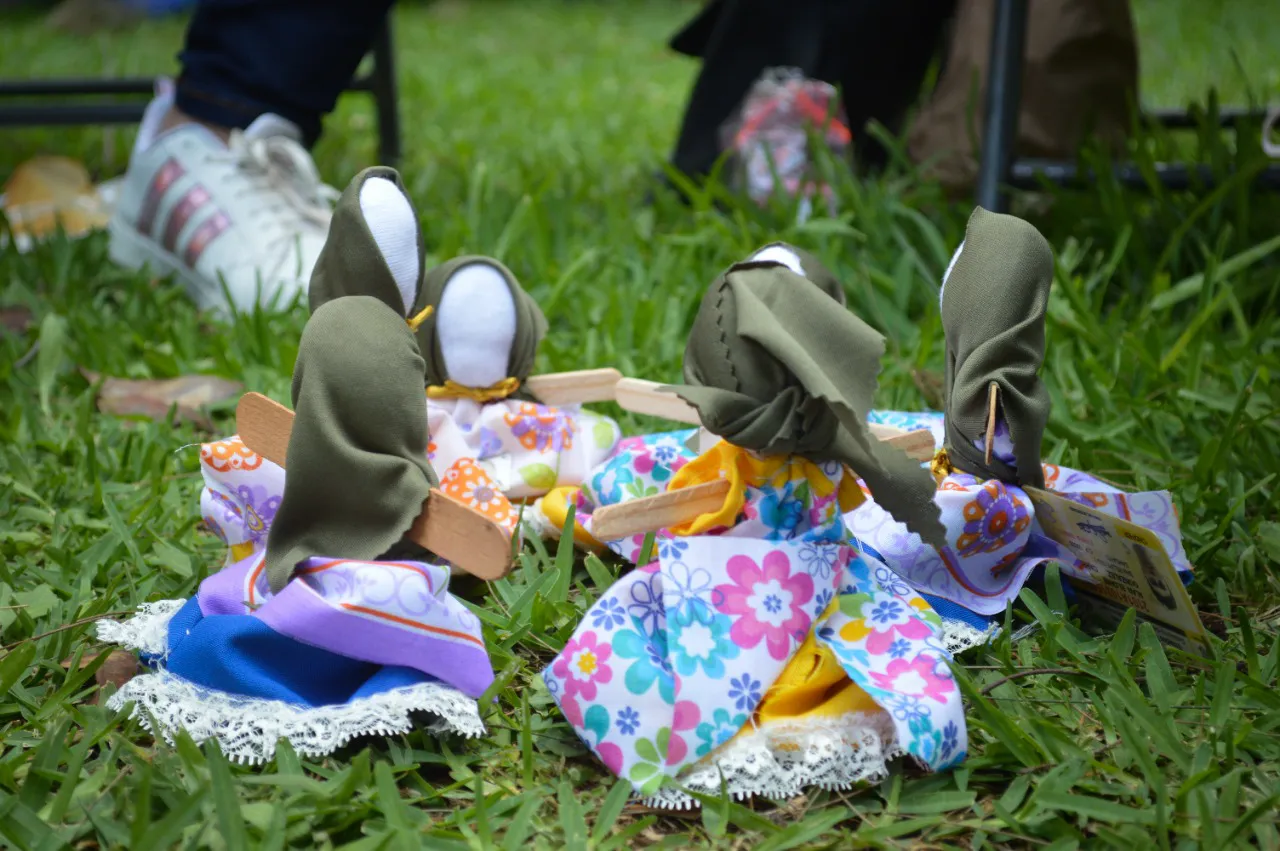
As they sow and stitch, the families chat and hear each other in real life for the first time in months. They talk about everything they have gone through since their loved ones went missing, about how the pandemic made searches harder and about the things that have helped them keep going. They give and receive support.
"God placed a new lady next to my seat, and it felt so good to show my support to her... It was something I had never done before: being strong for someone else, when I feel so weak," one of them said.
Although the workshop was held in person, keeping a safe distance was an important part of mutual care. They could not have physical contact, but their dolls could be close to one another. When everybody was finished, they arranged their dolls in a circle. "We wanted to show how important it is to always have the support of a group, to keep on building these support networks," said Beatriz. "In spite of the pain, the uncertainty and the anguish that never end, they can always feel supported."
The search for a loved one can be a very lonely road
Beatriz goes on to explain that the search for a loved one can be a very lonely process. "It's a type of pain that only a family that's going through it can understand. However, these shared spaces with other families who are coping with the same situation help turn this individual pain into collective actions that give strength to family members and their search and advocacy efforts."
After over a year of not seeing the families in person, the teams at the DIF Guadalajara and the ICRC, as part of the Acompañar las ausencias programme, decided to organize this workshop upon seeing the consequences of the pandemic. It was attended by 51 women and one man.
Beatriz explains that the main issue was that there were complications in keeping the families in touch. "The idea behind the workshop was to make something using our hands, to weave the social fabric. But it had to be something they could take home with them, because we know the pandemic will go on. We don't know yet to what extent we'll keep this going online or in person."
As part of its humanitarian action, the ICRC supports families in search of a missing loved one. For thousands of families in Mexico and Central America, the search has not stopped – and we are committed to keep on supporting them.
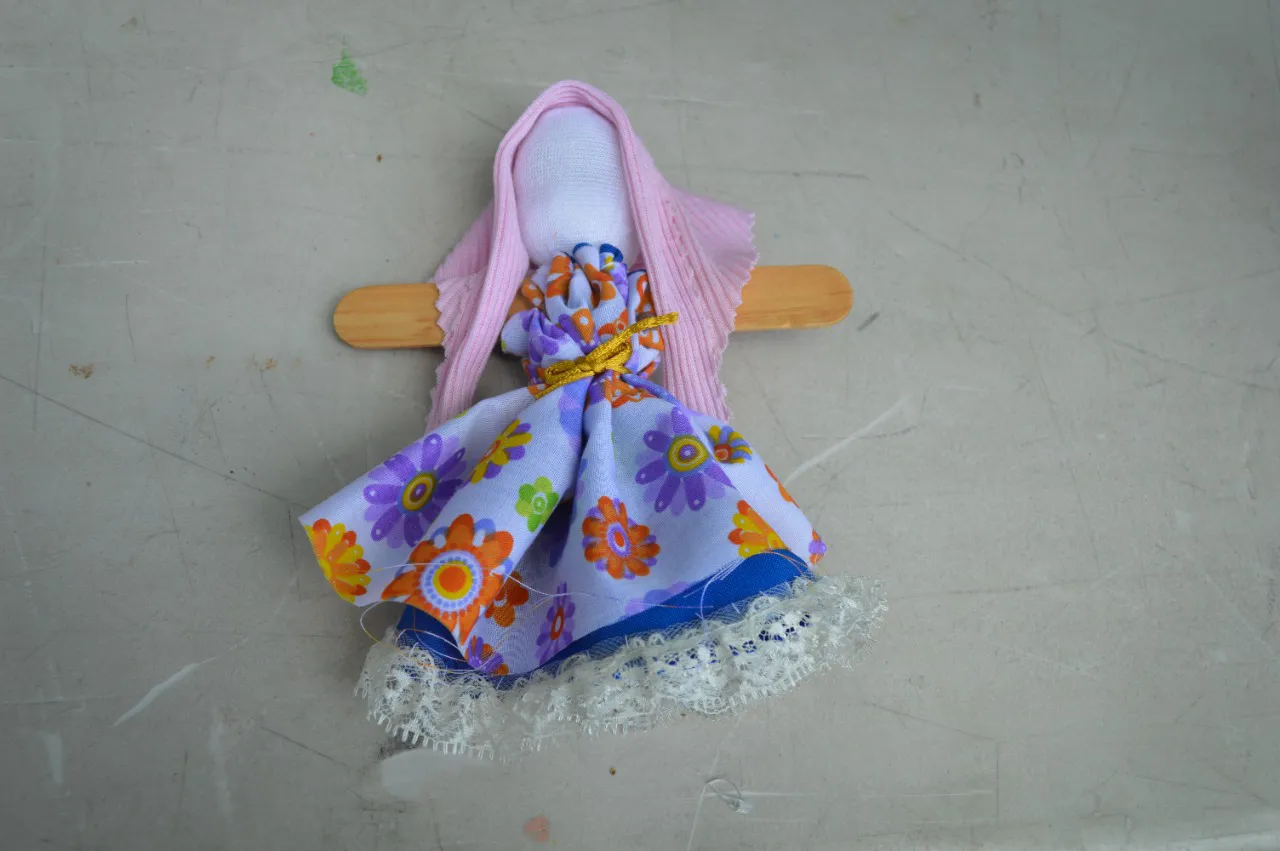
The following poem was read during the workshop:
I am made of bits and pieces of fabric.
Colourful snippets of each life that crosses my own,
which I weave into my soul.
They are not always pretty
and they are not always happy,
but they add to me and make me who I am.
With every encounter, with every interaction, I become bigger...
With every piece of fabric comes a bit of life, learning, affection, longing...
which make me more person, more human, more complete.
And I believe that is how life is made:
from parts of other selves that become part of our self.
And the best part is that we will never be done, finished...
there will always be a new bit of fabric to add to the soul.
So, I thank all of you
who are a part of my life
and who let me grow my story
with the pieces of fabric left on me.
May I also leave pieces of me along the way,
and may them be part of your stories.
And, piece by piece, may we, one day,
become a giant patchwork of "us".


